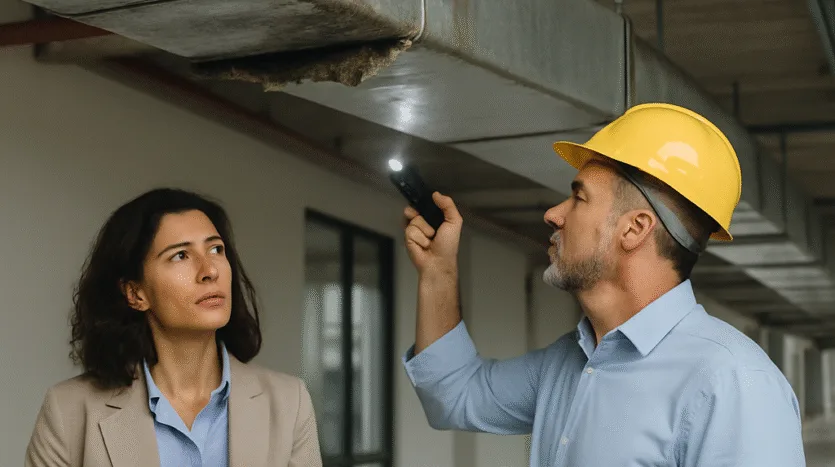Inspections, Repairs, and Negotiations: Getting Real with Commercial Property
When you start exploring the world of commercial real estate ownership, the excitement of owning your own space can quickly be met with the reality of repairs and renovations. Whether you’re purchasing a retail building, office space, or warehouse, one of the first — and most important — things to understand is this: most commercial properties are sold “as-is.”
This means what you see is what you get. But that doesn’t mean you have no leverage.
Let’s break down what you need to know about repairs during a commercial property purchase and how to approach them strategically.
The “As-Is” Clause: What It Really Means
The majority of commercial real estate transactions are sold “as-is.” This clause means the seller is not offering any guarantees or promises about the property’s condition. It also typically means they aren’t planning to make repairs before closing.
That can sound intimidating, but it’s not the end of the road — it just means you need to do your homework.
Due Diligence: Your Window of Opportunity
Once you’re under contract, you’ll begin the due diligence phase. This is your chance to thoroughly inspect the property and uncover any issues that may not have been visible during your initial walkthrough.
During this period, you should bring in professionals to evaluate the building — from roofers to HVAC specialists to structural engineers. This is where the power shifts slightly back to you as the buyer. If major problems surface, you now have grounds to renegotiate.
Focus on Big-Ticket Repairs
It’s important to go into negotiations with realistic expectations. If the parking lot has a few potholes or a faucet is leaking, it’s not likely the seller will cover those costs. However, if the HVAC system is on its last legs or there are structural concerns like a failing foundation or significant roof damage, those are fair and reasonable concerns to bring to the table.
At that point, you generally have two options:
-
Request repairs before closing.
-
Negotiate a price reduction or credit at closing to cover the cost of making the repairs yourself.
In many cases, sellers prefer to offer a credit rather than manage repairs themselves, especially if the buyer has specific contractors or upgrade plans in mind.
Be Reasonable, Be Strategic
Here’s the reality: sellers are not obligated to fix anything. They can say no to every request you make. But if the issues you uncover are significant enough, you hold an equally powerful option — you can walk away.
That’s why it’s important to approach these discussions strategically. Be firm, but fair. Sellers are more likely to accommodate reasonable requests backed by professional inspection reports. If you come across as nitpicky or demanding every small fix, you may lose credibility — and negotiating power.
Protecting Your Investment from Day One
The condition of the property at closing is what you inherit as the new owner. If you miss something in due diligence, it becomes your problem after the deal closes. That’s why this phase is so crucial — it’s your chance to make sure you’re not buying into a financial black hole.
Making informed repair requests and negotiations during due diligence helps you:
-
Avoid unexpected costs post-closing
-
Improve cash flow by reducing upfront repairs
-
Increase the value and functionality of your space sooner
The Bigger Picture
Repairs are just one of the many moving parts in buying commercial property, but they’re often the most overlooked. Too many buyers rush through due diligence or assume “as-is” means they’re stuck with every issue.
Don’t make that mistake.
Buying commercial real estate is one of the most powerful moves you can make for your business. It gives you control, equity, tax benefits, and long-term stability. But it’s only a smart investment if you go into it with eyes wide open and a solid strategy.
Let’s Unlock Your Business’s Potential
This is just the first reason why owning your own commercial space can be a game-changer — there’s more to come. From tax benefits to tenant income potential, the advantages are significant when done right.
If you’re thinking about buying your own commercial property and have questions about repairs, inspections, or negotiation strategy, I’m here to help. Let’s talk about how you can take ownership of your future — and your space.
Reach out today, and let’s start building something great together.


